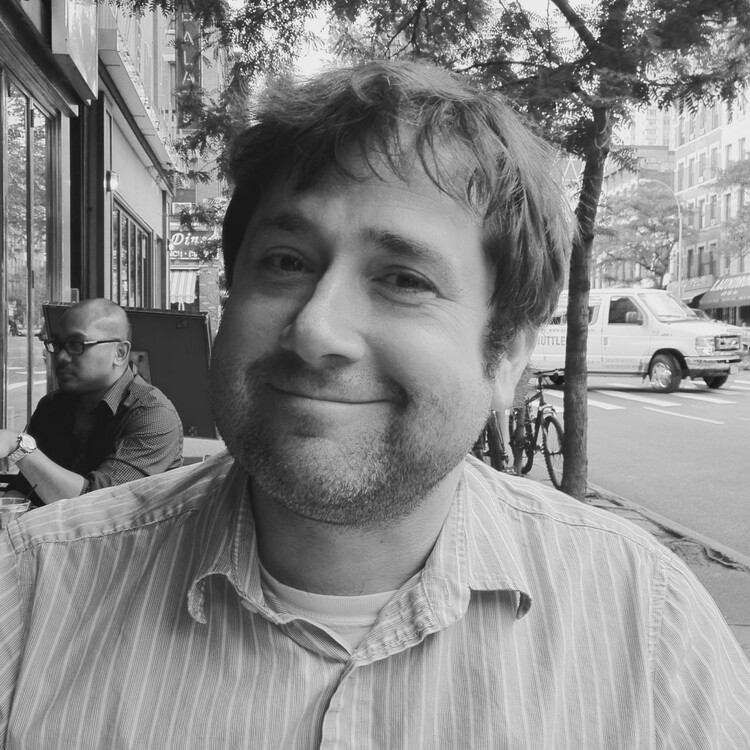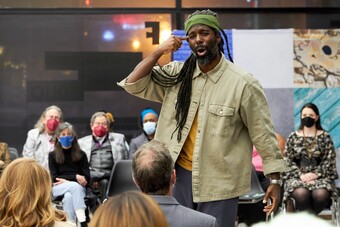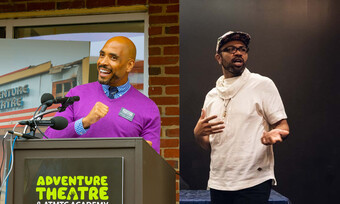We Are Our Public
Faint Glimmers of What It Means to Pledge Organizational Citizenship
I’m beginning this post at The Redwing Café in the Rainier Beach neighborhood in Seattle’s south end. Even in an at times over-broad conception of the “cultural sector,” cafés are rarely lassoed into the same corral with museums, operas, theatres. But where else do you go to find out what’s really going on?
A visual scan of the room grabs old and young (and middle like me); African Americans, Pacific Islanders, white Euro mutts (like me); and apparently affluent people, people on seemingly tighter budgets (like—well, you get the idea). An aural scan tunes into an emphatic case for a south end school fix, a discussion of Selma, a folding/refolding of a newspaper, a granddaughter’s declaration of independence and, one very, very carefully navigated introduction between parents and a boyfriend.
The Redwing has the energy of innate relevance. It’s animated by the ideas, issues, and creativity of the people who’ve sought it out. It feels microcosmic of the life of the street outside of its broad and brightly lit windows. It is, in a stretchy sense of the word, “programmed” by its patrons.
I was a participant in the second cohort of National Arts Strategies Chief Executive Program, where my organization, Town Hall Seattle, signed onto a project called “The Organization as Citizen.” CEP, a yearlong convening of fifty cultural leaders (most from the US but also Europe, and South and Central America) finished with a final session of small group work to identify issues we’d explore together after our year was over. As NAS’ way of baking in a half-life for all this time together, our group agreed to offer regular updates in a series of loose experiments defining and expressing “Organizational Citizenship,” and to inspire you to join us and report in as well. [One year and one NAS Alumni retreat later, I’m posting my initial reflections on the idea, dating to some months back, knowing the conversation has already been advanced by some new voices. I’ll leave it to them to chime in.]
Our group was impatient with the fact that so many of the questions we had considered in other sessions were framed as “How do we (Cultural Org) get them (the entire world beyond our CO) to do ‘X?’” So, far from any activist impulse, we began with the simple acknowledgement (as James Kass frames up in the video above) that we are not separated from our public, we are our public. Organizational citizenship starts with the maybe self-evident acknowledgement that we reside within the communities we serve, not apart from them. Our orgs are constituents of the whole, not accessory to it—and maybe we will be healthier and more impactful if we acknowledge and exercise our citizenship.
American Heritage dictionary defines citizenship as “the status of a citizen with its attendant duties, rights, and privileges.” OK, duties, rights, and privileges—acknowledging that the last two start to flirt with concepts of “Corporate Personhood” many find difficult (even socially destabilizing), we all chose to sign onto a concept of duty. Our projects would explore the frontiers of our participation in our communities, whether through programs, institutional practices and affiliations, or just an expanded sense of what’s “our business” as cultural organizations.
But the definition also begs the question of what exactly is a “citizen?” American Heritage (apparently my desktop robot’s dictionary of choice) gives four takes, three of which I'll shorthand here: a person owing loyalty to a state or nation, and entitled to protection of same; a resident of a city, especially someone who has the vote; and “a civilian.” The same source says a “civilian” is a person following the pursuits of civil life, and “a person who does not belong to a particular group or engage in a particular activity."
Organizational citizenship starts with the maybe self-evident acknowledgement that we reside within the communities we serve, not apart from them. Our orgs are constituents of the whole, not accessory to it—and maybe we will be healthier and more impactful if we acknowledge and exercise our citizenship.
So one definition of organizational citizenship may be to explore and express ourselves as civilians, in the realm beyond the things we claim to know deeply, virtuosically…If our professional lives (and our organizations) are built on deep exploration and virtuosic knowledge of a subject/form, how do we expand our conception of what is our business without damaging that exploration?
Town Hall’s take on citizenship is a fundamental recognition of a whole—a politic—greater than our own interests and needs. It’s a bit like President Obama’s unfortunate (but intentionally misunderstood) declaration: citizenship begins when you realize “you didn’t build that,” and that your own success is inextricably bound up in the efforts—and the success—of others.
Sorry for all this time spent musing on definitions—our group didn’t ever land on a final conception of “citizenship,” adopting instead a Potter Stewart-style “we know it when we see it.” I’m just advancing two ideas—acting like a civilian and an ethic of collective success—that will inform Town Hall’s approach.
Over the course of these eighteen months, I would expect other reports here to look quite different, according to our respective definitions. Maybe citizenship means haunting the halls of power; maybe it means community organizing; maybe it means an education initiative; maybe it means joining with other organizations in a collective effort.
And maybe, as in the case of Town Hall, it starts slow, with prefatory work in cafés and community spaces, all designed to install an honest capacity for influence by outside voices. Then we’ll figure out how to attribute changes in our programming to the influences of our newly heightened external awareness.
Before I left the Redwing I spoke with the owner about changes in the neighborhood, and his desire to at once inflect/inspire his little corner of it, and to respond to his growing community of regulars. I’m finishing this up from my desk back at Town Hall Seattle (I can be an obnoxiously fast talker, but I’m a painfully slow writer). We hope to install the Redwing’s energy, and effortless embrace of the present, in our organization—and to make awareness of the community in which we work second nature for us.
Okay—a conception or two of citizenship, and the modest beginnings of one experiment—at least fourteen more to come. We invite you to join us, take this small idea and run with it—and then add your voice here.











Comments
The article is just the start of the conversation—we want to know what you think about this subject, too! HowlRound is a space for knowledge-sharing, and we welcome spirited, thoughtful, and on-topic dialogue. Find our full comments policy here